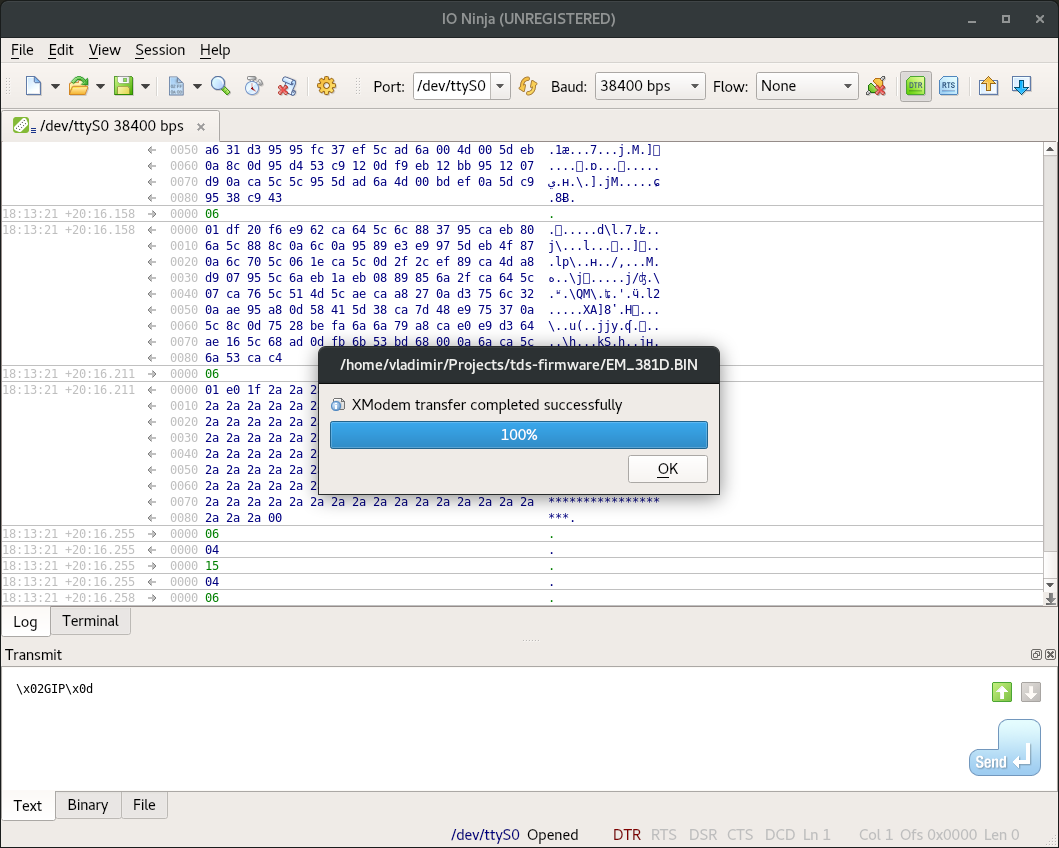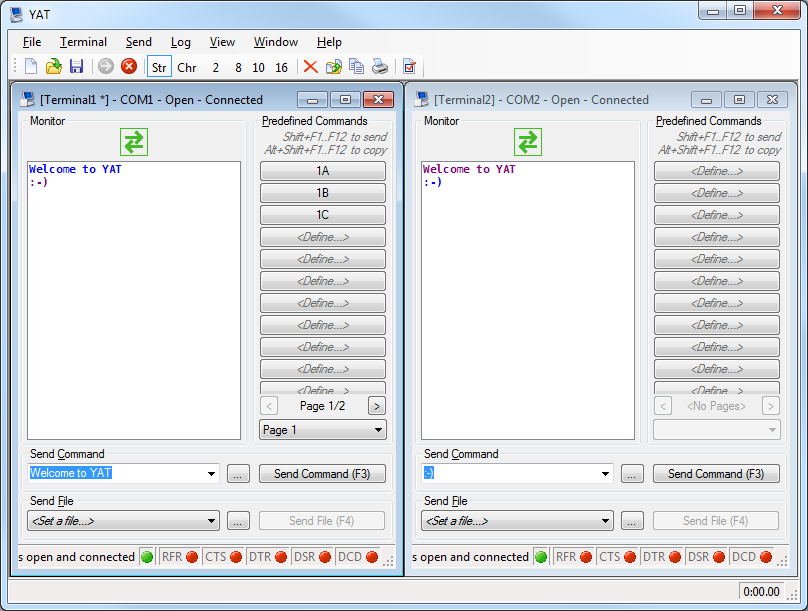
- #Mac serial terminal emulator install
- #Mac serial terminal emulator serial
- #Mac serial terminal emulator driver
- #Mac serial terminal emulator manual
- #Mac serial terminal emulator software
#Mac serial terminal emulator serial
#Mac serial terminal emulator driver
Virtual Serial Port Driver is pretty flexible letting you create ports for the current user session only allowing RDP users to create port with the same name (e.g.VSPD is hyper-threading and VMware friendly.The application lets you emulate a virtual serial line connection and its break. Multiple null-modem schemes are available with the tool, and they can be saved as templates for later use. Virtual Serial Port Driver also can serve as a null-modem emulator.
#Mac serial terminal emulator software
as well as software flow control (Xon/Xoff). This includes DTR/DSR/CTS/RTS/DCD/RI, etc. All standard hardware signal lines are supported by Virtual Serial Port Driver.You can also delete a virtual pair or modify their settings without closing the ports down. Your configured virtual serial ports are re-established before the user login. The virtual serial port emulator enables the virtual COM ports to be re-created when your system is restarted.A simple search in Device Manager’s “Ports” group will display all of your virtual ports. You can even use the same names as the system’s physical COM interfaces. When emulating virtual serial ports with this application you have the ability to name them in any way that you like.A nice feature of the software is the ability to delete all of your created pairs with a single click The pairs are linked by a virtual null-modem cable. Using Virtual Serial Port Driver, you can create as many pairs of virtual COM ports as you want.The advantages of RS232 Emulation software by Eltima: Note: You have the ability to create an unlimited number of virtual serial port pairs with Virtual Serial Port Driver for Windows. Once these steps are completed, Device Manager and Serial Ports Explorer will recognize and display the pair of virtual serial ports.Choose port names from the drop-down menu or define custom identifiers.Launch the software and open the "Pair" tab, and click "Add a new pair".
#Mac serial terminal emulator install

Select 'Filenames and paths' and press 'F' (Logging options). To exit Minicom when in terminal mode press 'Ctrl-A' to get a message bar at the bottom of the terminal window and then press 'X'.Īnother useful Option is to log all information to a file which will be saved in your Home directory.

Hit enter, and you may be asked for your username, indicating a successful connection. Once saved, one may choose Exit, and one is at the minicom prompt. Once configured, one may "Save setup as dfl", which will save these as the default configurations for future connections (/etc/minicom/minirc.dfl). Once these have been adjusted, one may want to also go to the Modem and dialing menu and remove all information in setting options A through I.
#Mac serial terminal emulator manual
Next, one will want to consult the hardware vendor's manual for the Bits per second, data bits, Parity, stop bits, and Flow control. Then, adjust the Serial Device to the device one has, for example: A - Serial Device : /dev/ttyS0 One will next choose "Serial port setup'. Next, enter in a terminal enter: sudo minicom -s which we will need in order to use Minicom. In the first section above it is ttyS0, the other is ttyUSB0. What we are interested in is the name of the serial port. usb 4-3: pl2303 converter now attached to ttyUSB0

audit(1243322582.732:2): type=1503 operation="inode_permission" requested_mask="a::" denied_mask="a::" name="/dev/tty" pid=5705 profile="/usr/sbin/cupsd" namespace="default"įor a USB-to-Serial adapter, one may see: console enabled If it is a direct serial connection, the output will be something like this: console enabled In order to find the name of your port(s) enter this command in terminal: dmesg | grep tty Install the program with: sudo apt-get install minicomĪlternatively, you can get Minicom via the Synaptic Package Manager. It is used to talk to external RS-232 devices such as mobile phones, routers, and serial console ports.

Minicom is a text-based serial port communications program.


 0 kommentar(er)
0 kommentar(er)
